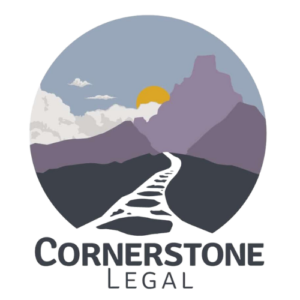Watching someone you love decline in health is never easy—especially when it becomes clear that long-term care may be necessary. Many families find themselves overwhelmed by the emotional and financial weight of the situation. If you’re wondering how you’re going to afford the care your loved one needs, you’re not alone—and Medicaid may be part of the answer.
If you’re starting this journey and need guidance, email us at
katrina@cornerstonelegalpllc.com
or call us at (517) 708-2222.
Let’s walk this together, with care and clarity.
Here are ten key things you should know if your loved one needs Medicaid to help pay for long-term care.
1. Medicaid Is Not Just for Low-Income Families
Many people mistakenly believe Medicaid is only for those with no assets. The truth is, with proper planning, families with modest savings can still qualify while preserving assets for spouses or future generations.
2. There Are Strict Eligibility Requirements
Medicaid eligibility is based on both income and assets, and the rules differ by state. In Michigan, a single person can only have $9,960 in countable assets—but not every asset is countable. We can help you understand which assets are countable and which assets are excluded.
3. You Don’t Have to Spend Everything to Qualify
You’ve probably heard about the “Medicaid spend-down,” but that doesn’t mean you need to go broke. There are legal and ethical ways to protect assets while still qualifying for Medicaid benefits.
4. The Five-Year Look-Back Period Matters
Medicaid reviews financial transactions made in the five years prior to applying. Gifts, transfers, or sales below market value can trigger penalties. If you’re considering helping your loved one move assets, talk to us first.
5. The Healthy Spouse Can Keep a Portion of the Assets
Medicaid allows the “community spouse” (the one not needing care) to retain a portion of the couple’s assets and income. We help families maximize these protections to avoid financial devastation.
6. Certain Assets Are Excluded
The family home, one vehicle, and personal belongings may not count against Medicaid eligibility—under specific circumstances. Knowing which assets are excluded can prevent unnecessary stress and loss.
7. You Should Avoid DIY Planning
Medicaid planning is complex. One wrong move can delay eligibility or cost tens of thousands of dollars. This is not the time for guesswork or internet advice.
8. Timing Is Everything
Don’t wait until your loved one is already in a nursing home to seek help. The earlier you plan, the more options you have to protect assets and ensure a smooth transition.
9. Powers of Attorney Are Essential
If your loved one is unable to make decisions, having the right legal documents—especially a financial power of attorney—can make all the difference in accessing funds and applying for benefits.
Related: What is a Power of Attorney?
10. You Don’t Have to Do This Alone
This journey is hard enough without trying to be your own lawyer, advocate, and financial planner. We walk beside you every step of the way—answering questions, filing paperwork, and giving you peace of mind.
Caring for a family member should come from a place of love, not fear. Let us help you plan with love and legal clarity.
Email us at katrina@cornerstonelegalpllc.com or call (517) 708-2222.



